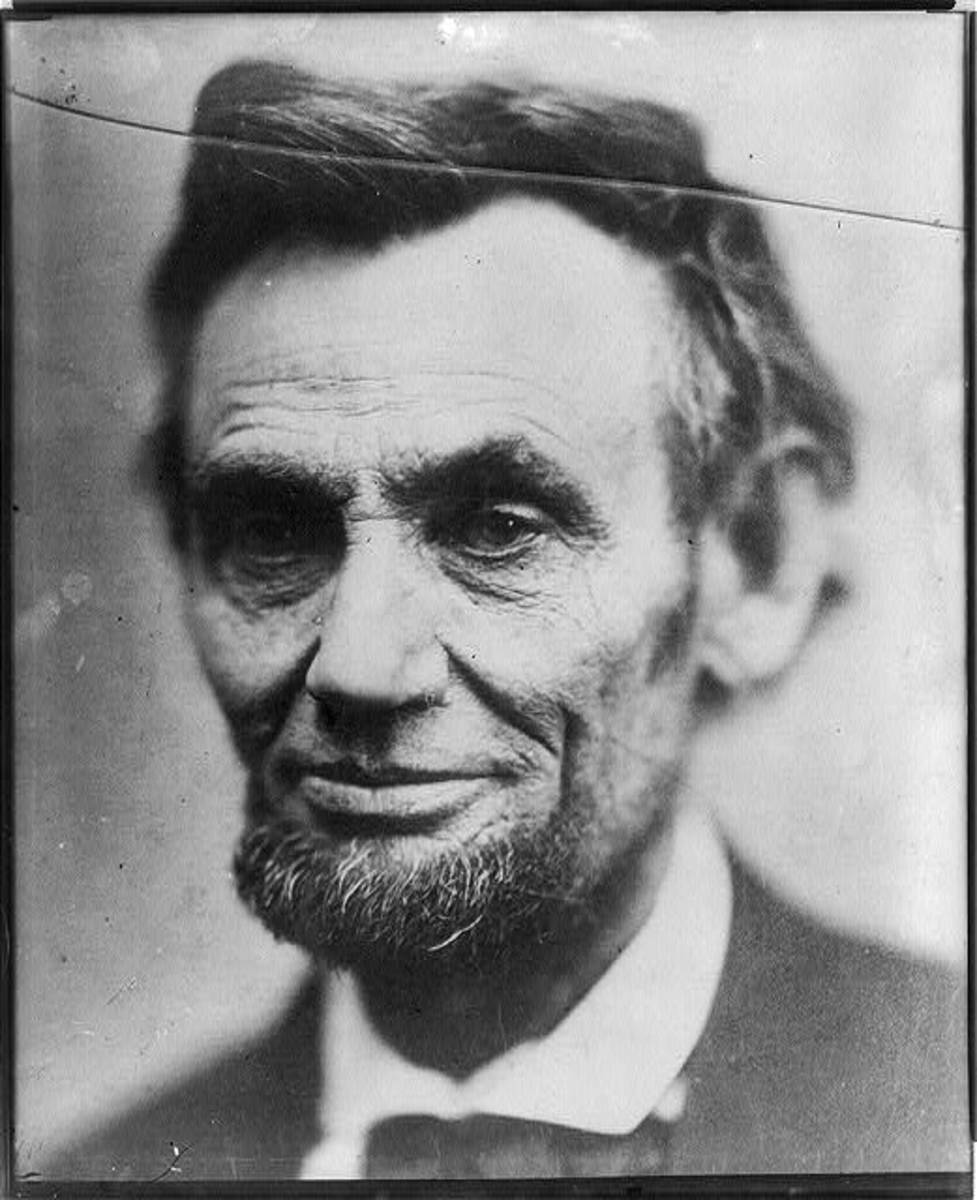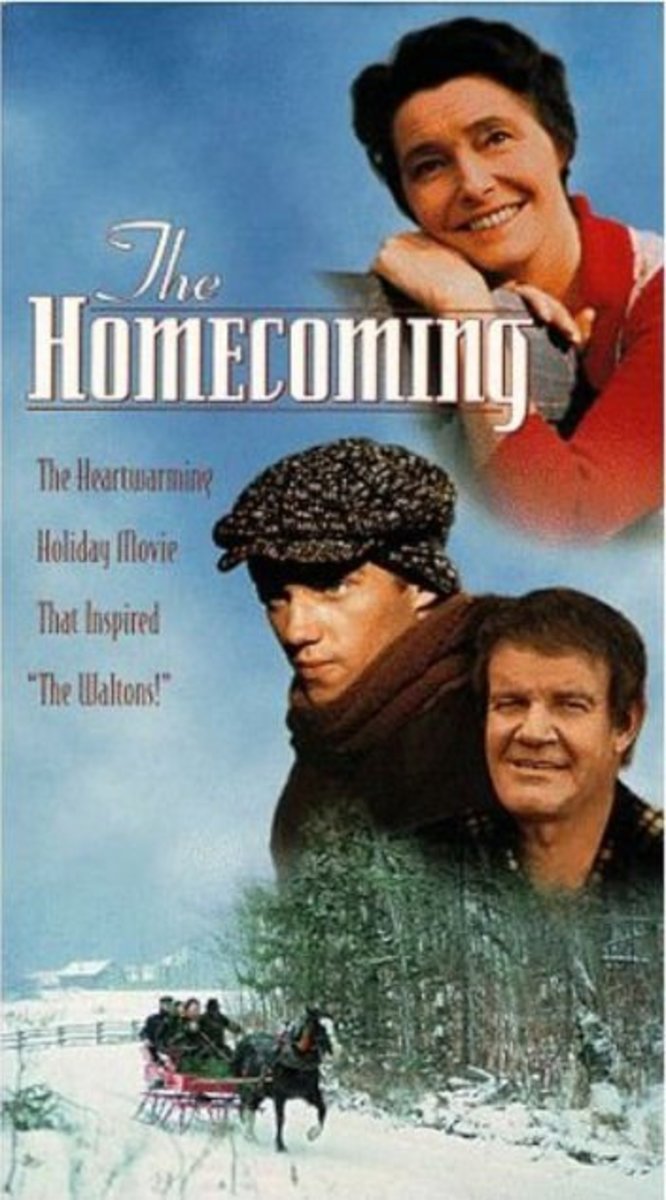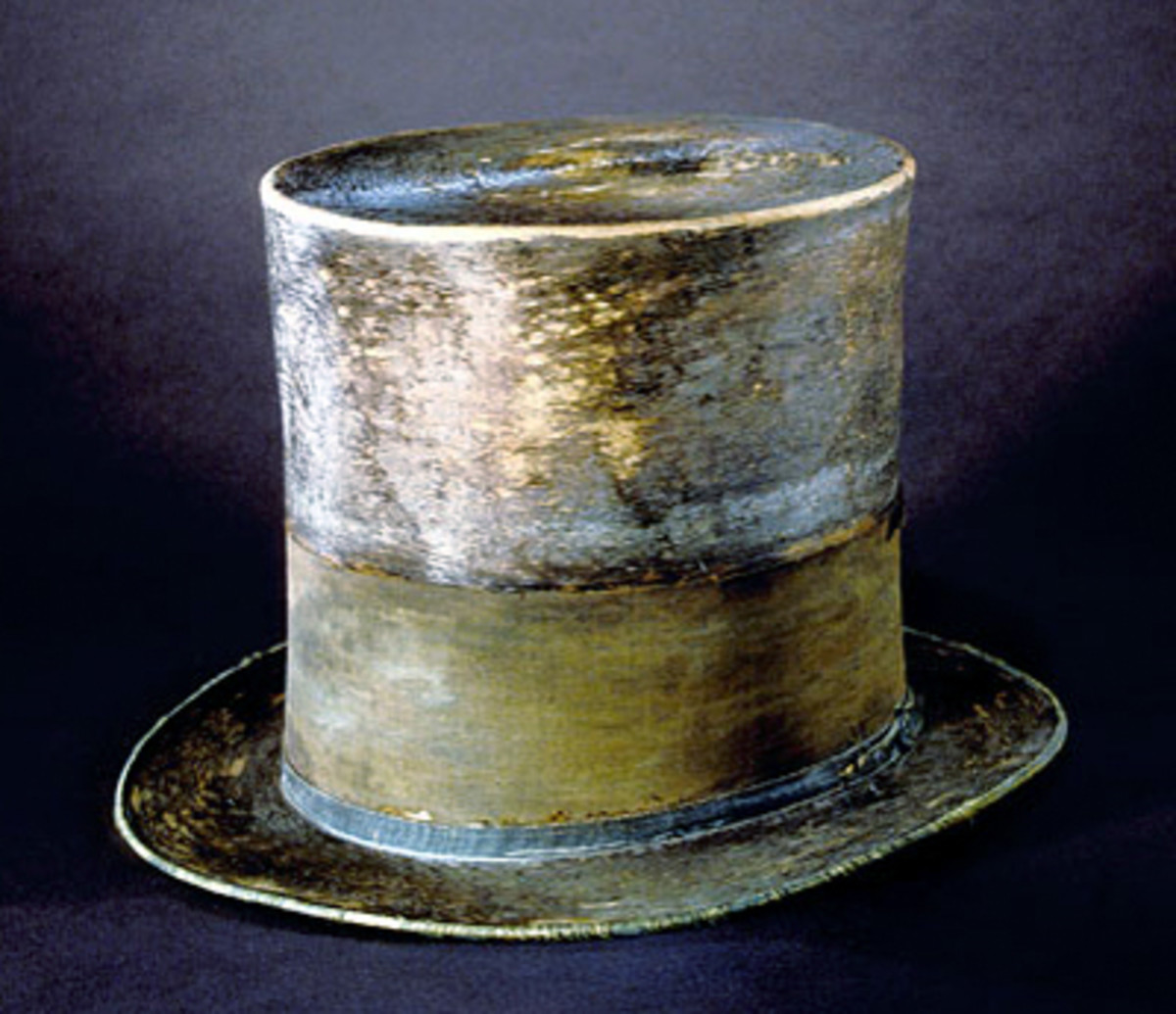The Gettysburg Address and The Fear of God
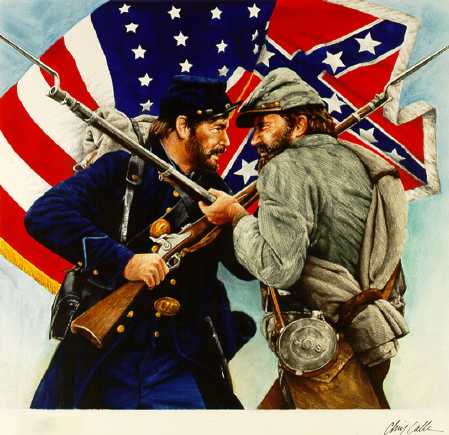
President Lincoln delivered the Gettysburg Address to a divided nation 148 years ago. Once again, America stands divided. Not between racial or geographical boundaries, but rather, by political and philosophical boundaries. At the heart of this division is the question of the existence of God and the role of religion in politics. Abraham Lincoln openly declared at Gettysburg that this nation was under God, suggesting faith and submission to God. A careful examination of his address reveals that President Lincoln subtly warned Americans that they are accountable to God, that their very existence as a free and self-governing nation depends on His favor. The Gettysburg Address places faith alongside government and suggests that a nation governed by the people requires a people who fear God. By working to remove God from society, Atheistic Americans are undermining their own freedom.
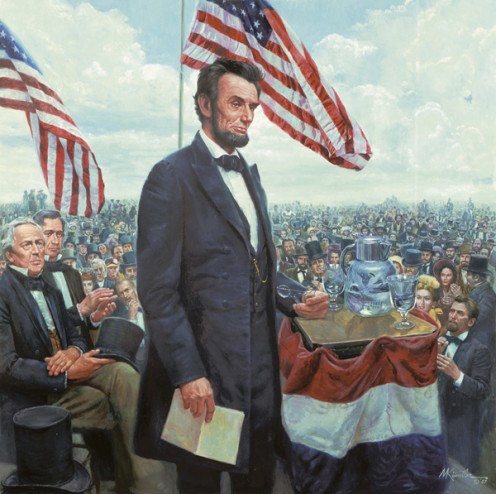
The Gettysburg Address
The Gettysburg Address is possibly Abraham Lincoln's most famous speech. Delivered four months after the battle of Gettysburg and eighty-seven years after the signing of the Declaration of Independence, the speech has lived on through the years as a national treasure. Presented only minutes after a two hour oration by the renown speaker and Senator from Massachusetts, Edward Everett. President Lincoln surprised the audience with a carefully crafted speech that was direct and to the point. According to VisitGettysburg.com, his appointed task was to dedicate a portion of the battlefield at Gettysburg to the men who died there defending the Union. His speech took a total of two minutes to deliver. Two powerful minutes that the nation would never forget.
While the geographical borders of the United States would eventually be restored, the task of uniting her people would prove to be even more difficult than the war itself. It would be decades before the North and South would overcome their mutual disdain. For Abraham Lincoln, the strife and bitterness will eventually take his life. However, on November 19, 1863, he was among the living in Gettysburg addressing a nation that was questioning its identity and its purpose for existence. To remind the American people where they came from, and why they are fighting.
The address was both a dedication and a prayer. President Lincoln also hoped to "Put the Civil War in perspective as a test of the success of the American Revolution." (VisitGettysburg.com) The address called the living to preserve a nation founded on freedom and equality. By doing so, he subliminally reminded the nation that at the forefront of the conflict between the north and south, stood slavery contradicting the principles of equality declared by the Declaration Of Independence. By including the term "under God" The Gettysburg Address becomes a prayer for a new birth of freedom and the longevity of a nation governed by the people. Suggesting that our fate as a nation depended on God's continued favor.
The Fear of God
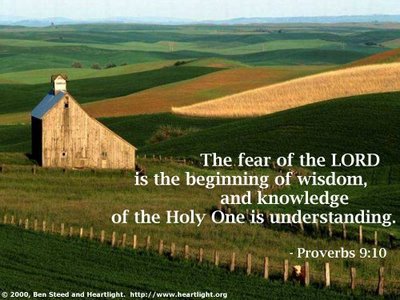
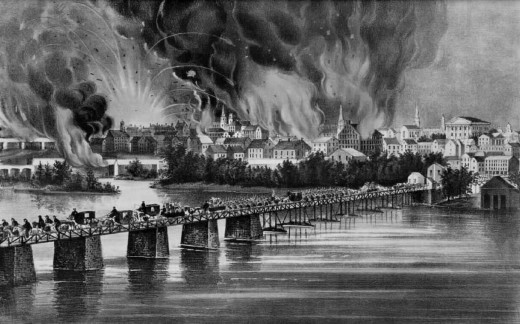
A nation governed by the people requires a people that fear God. The fear of God has generally been defined as the belief that humanity is subject to a sovereign, all knowing, all powerful God who judges justly, and is ever present. God fearing men and women believe that actions have been seen and noted and have consequences both in this life and after. Thomas Jefferson, when discussing the hypocrisy of Slavery in his 1781 Notes On The State of Virginia, Query XVIII: Manners, said " I tremble for my country when I reflect that God is just: that his justice cannot sleep for ever". Thomas Jefferson trembled for Good reason. Death claimed 165,000 Americans at Gettysburg, and 750,000 by the wars end.(VisitGettysburg.com) As President Lincoln and the American people witnessed first hand the bloody carnage left on battle fields throughout America, the looting and trashing of towns in the wake of advancing armies, and the number of widows and fatherless children left to mourn in the ashes of war. Their minds would have instinctively understood that God's judgment had manifested, justice had indeed awaken.
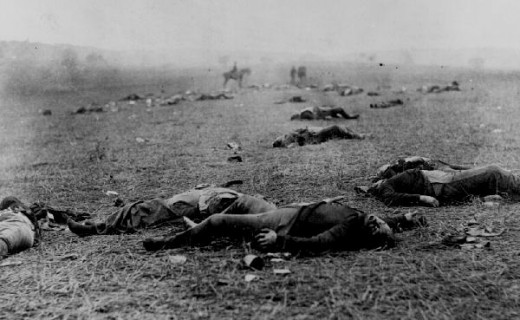
The American Constitution was made for a moral and religious people. President John Adams wrote in his letter to the officers of the First Brigade of the Third Division of the Militia of Massachusetts, “Our Constitution was made only for a moral and religious people. It is wholly inadequate to the government of any other.” For the last 250 years Christianity has been the most influential religion in the United States. Using Christian principles as an example, we can better understand President Adams statement. Christianity teaches that humanity is naturally self-centered or evil. (Gen 6:5 KJV). A man will see to his own needs and desires at the expense of others. Jesus taught his students that all of God's laws could be summed up into two commands. "Love the Lord your God with all your hearts, soul, and mind and love your neighbor as you love yourself." (Matthew 22:37-40 KJV) Christians believe that these two principles, the love of God and treating other as you treat yourself are two primary ingredients to a fair and just society. As the Christian matures in his faith, the fear of God becomes the love of God.(1 John 4:18 KJV) Christians embrace God's Omni presences and strive to show their love for Him by joyfully following His Laws. No governmental coercion is necessary. Rev. Rodney Holder, the director of the Faraday Institute for Science and Religion at St Edmund’s College in Cambridge, questions in his academic Journal entitled The Bible, Ethics, and the New Atheism, weather a post-Christian nation could maintain humane Christian values in the absence of the underlying belief system that birthed those values.He suggests that a nation with out God, over time develops a self-serving moral base that lends itself to anarchy.
A society that abandons faith in God must resort to more control to deal with humanity's selfish and rebellious nature. According to the ACLU's webpage called Crime and Civil Liberties, crime in America has gone up 61 percent across the nation in the last two decades. They report that the U.S. is one of the most dangerous countries in the industrialized world. According to their research, Americans are seven to ten times more likely to be murdered than the residents of most European countries and Japan. The article indicated the governments response has been stiffer penalties, hi-tech policing, massive prison construction and the return of the death penalty in many states with no diminishing affect. Illustrating John Adams point, our government is incapable of governing a Godless people. History would disagree with atheistic Americans who declares "I can be Good without God" (Dylan Galos: The Freedom From Religion Foundation), for time has proven that humanity will not remain moral unless forced to do so. From the Reign of Terror during the French Revolution (Historywizz.com) to American schools with armed officers patrolling their halls(LA Times 10/15/1998) Any time God is removed from a society, a greater governmental control over the lives of everyday citizens develops to manage humanity's natural propensity for destruction, taking away civil liberties and destroying freedom.
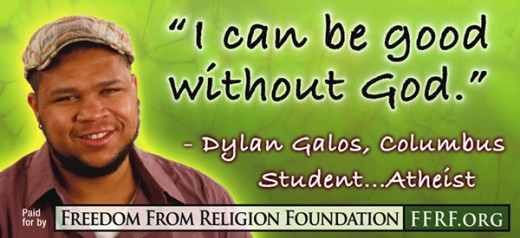
The end of libery and Justice
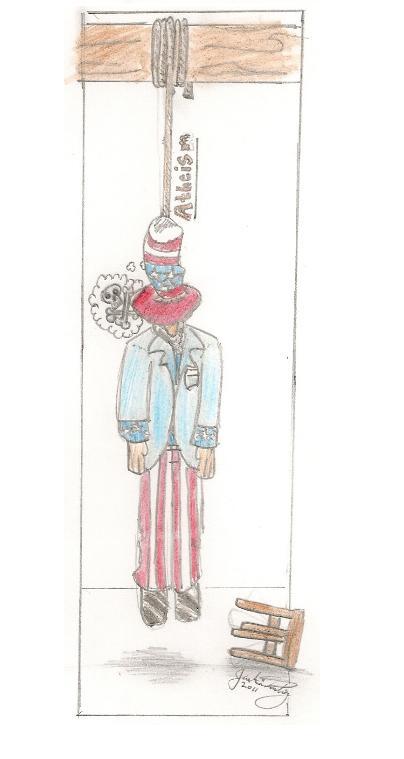
By working to remove God from society,Atheistic Americans undermine their own freedom. The New York Times opinion pages offered up an article by Franz De Waal called Morals without God. He makes the point that man can be good without God. He questions the Christian notion that Humanity must be forced to be moral. " I am wary of anyone whose belief system is the only thing standing between them and repulsive behavior." What Mr. De Waal fails to see is that repulsive behavior is defined by ones belief system. In every orderly society good and evil must be defined. In so doing a religion is created. If religion is removed then the order that religion brings to society is also removed. Religion will always serve to define the morality of a people. The question is what kind of religion will future Americans embrace; a religion that fears God, or a religion that fears men? In 1806, Benjamin Rush, one of the signers of the Declaration of Independence, enthusiastically suggested that Christianity should be the religion of choice for any society. In his collection of writing called Essays, Literary, Moral and Philosophical he said “Christianity is the only true and perfect religion, and that in proportion as mankind adopts it's principles and obeys its precepts, they will be wise and happy.” There are those who will argue against Christianity being the only pure religion. However, Christian principle and precepts perfectly embrace the ideals put forward by the American constitution including that essential element, the fear of God .
Twenty three years before the Civil War, Abraham Lincoln prophetically addressed dangers to the American way of life in his Lyceum Address. His warning remains applicable in 2011 just as it was in 1838:
From whence shall we expect the approach of danger? Shall some trans-Atlantic military giant step the earth and crush us at a blow? Never. All the armies ofEurope and Asia...could not by force take a drink from the Ohio River or make a track on the Blue Ridge in the trial of a thousand years. No, if destruction be our lot we must ourselves be its author and finisher. As a nation of free men we will live forever or die by suicide.
The fear of God has always been a vital part of the American conscience and is necessary for a nation of free men to live forever. The Gettysburg address serves as a reminder that God is watching. Atheists who labor to remove God from society are working to destroy America's freedom. Religion defines a people's morality and gives rise to the political system that governs them. A religion that fears God, frees men.
Work Cited
Abraham Lincoln Online, "The Gettysburg Address" The Gettysburg Address. Abraham Lincoln Online Speech and Writings, n.d. Web. 05 December 2011.
Abraham Lincoln Online, "Lyceum Address" Lyceum Address. Abraham Lincoln Online Speech and Writings, n. d. Web. 05 December 2011.
Adams, John. " The Works of John Adams, Second President of the United States: with a Life of the Author, Notes and Illustrations, by his Grandson Charles Francis Adams." Boston: Little, Brown and Co., 1856. Vol. 9 of 10.To the officers of the First Brigade of the Third Division of the Militia of Massachusetts. Online Library of Liberty. Web. 05 December 2011.
American Civil Liberties Union of Florida, "Crime and Civil Liberties" ACLU: Raising Public Awareness. ACLU of Florida, n.d. Web. 05 December 2011.
Benjamin Rush, "Essays, Literary, Moral and Philosophical", Philadelphia: printed by Thomas and William Bradford, 1806, p. 93.
Chrissy Calli, Civil War Soldiers, n.d.Sigal Museum, Web. 05 December 2011
DE Waal, Frans. " Morals Without God?" New York Times Opinionator. The New York Times, 17 October 2010. Web. 05 December 2011.
Forest, Nancy. " Armed Officers to Patrol High Schools" Las Angeles Times. LasAngeles Times, 15 October 1998. Web. 05 December 2011.
Hallowell Billy, "Good Without God: Freedom From Religion Foundation To ConveneIn Connecticut for Annual Atheism Convention" The Blaze, n.d. Web, 05 December 2011.
Historywizz.com, "The Reign Of Terror." The Reign Of Terror. HistoryWiz, n.d. Web. 05 December 2011.
Holder, Rodney D. "The Bible, Ethics and the New Atheism." Science & Christian Belief Apr. 2011: 2. Academic Search Complete. Web. 5 Dec. 2011.
KJV Life in the Spirit Study Bible. Adams, John, Stanley M Horton, William W,and Glen W Menzies. Grand Rapids Michigan, Zondervan, 2003. Print Kunstler, Mort, The Gettysburg Address. n.d. King James Galleries. Web. 05 December 2011.
Library of Congress, "The Gettysburg Address." Library of Congress: My Loc, Library of Congress, n. d. Web. 05 December 2011.
Public Broadcasting Station."Notes on the state of Virginia, Query XVIII 1781." PBS Archive, n.d. Web, 05 December 2011.
Rushing Justin. "The Death of Sam" Cartoon. Unpublished, 05 December 2011. 1. Print
Steed Ben. Proverbs 1:10 Photo. Heartlight.org n.d. Web 05 December 2011
Visit-Gettysburg.com, "The Gettysburg Address Text." Visit-Gettysburg Address.com.Visit-Gettysburg.com, n.d. Web. 05 December 2011
Related articles Abrushing1968
- My Soap Box: Violence Is Not The Answer
One of the things that that really chaps my hide is when people compare Christianity with Islam. Stating that extreme or radical Christians are just as dangerous as the Muslim extremists who attacked America on 911. That just bunches my britches! For - From Whence The Dragons Rise.
A young man, accustomed to going where he will, came upon a wall that stretched across his path. In front of the wall stood an abandoned guardhouse and a sign post that read “You Shall Go No Further.” - The Freedom of Religion
On Jun 4, 2009 President Obama gave his speech to the "Muslim world" I was struck by his attempt to assure the Muslim people that America is a tolerant and just nation. That religious freedom is one of our most precious rights. I was surprised by thi - A Christian Nation
The American Founding fathers gave Humanity a religious safe haven, the likes of which had never existed before the signing of the US constitution. This gift requires religious neutrality from American Government and a wall of separation between..... - Bunnell Florida City Commissioners will open Meetings with Prayer - Orlando Christianity | Examiner.
"Our Constitution was made only for a moral and religious people. It is wholly inadequate to the government of any other." President John Adams The moral and re


